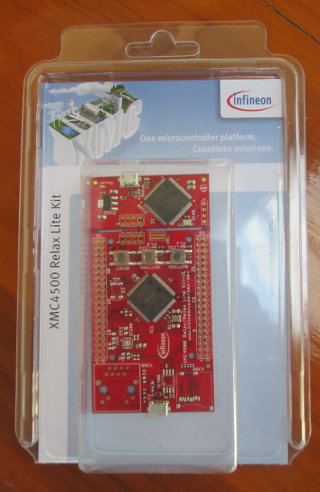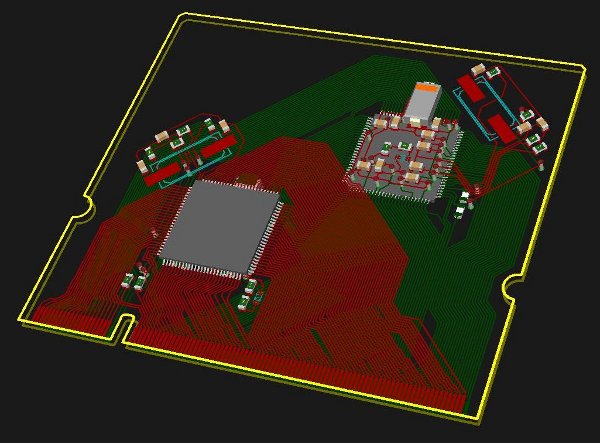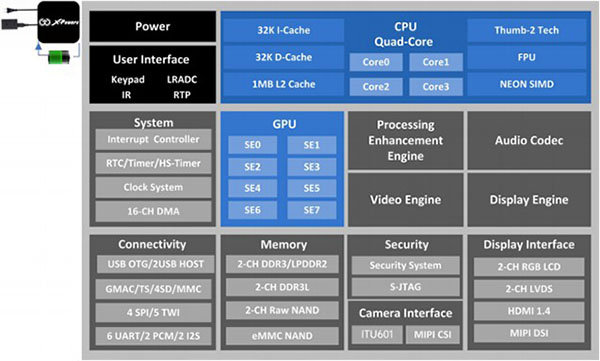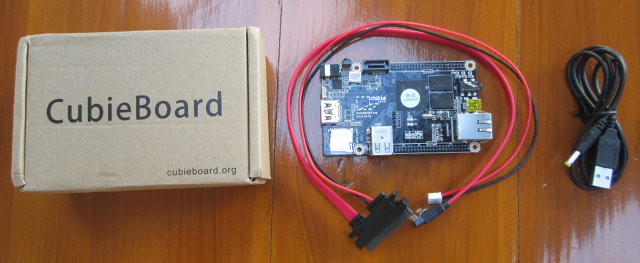Intel has recently introduced the Intel Atom S1200 product family (Codename: Centerton) targeting high-density microservers (1000+ nodes per rack), and energy-efficient storage and networking systems. These new processors includes features such as error code correction, 64-bit support, and virtualization technologies required for use inside data centers, and consume as low as 6.1 watts. Three models are currently available: Intel Atom S1220 @ 1.6 GHz – TDP 8.1 Watts Intel Atom S1240 @ 1.6 GHz – TDP 6.1Watts Intel Atom S1260 @2.0 GHz – TDP 8.5Watts The SoCs include 2 physical cores and 4 threads enabled with Hyper-Threading Technology. The SoCs also include 64-bit support, a memory controller supporting up to 8GB of DDR3 memory, Intel Virtualization Technologies (Intel VT), 8 lanes of PCI Express 2.0, Error-Correcting Code (ECC) support, and other I/O interfaces integrated from Intel chipsets. Atom S1200 processors are manufactured using 32nm process technology. Intel also announced that […]
MediaTek Unveils Quad-Core Cortex-A7 MT6589 SoC
This December is a busy month for silicon manufacturers and Cortex A7 processor, after AllWinner A20 and A31, Rockchip RK3188 (4x Cortex A9), Qualcomm MSM8226 & MSM8626, Broadcom BCM21664T (2x Cortex A9), MediaTek announced MT6589, a quad-core Cortex A7 System on a Chip (SoC) with Imagination Technologies PowerVR Series5XT GPU that targets mid to high-end Android smartphones and tablets. Mediatek MT6589 also integrates a multi-mode UMTS Rel. 8/HSPA+/TD-SCDMA modem developed in-house, Mediatek’s 4-in-1 connectivity combo (802.11n Wi-Fi, BT4.0, GPS and FM), and a multimedia subsystem that supports 1080p 30fps/30fps low-power video playback and recording, a 13MP Camera with Integrated ISP, up to FHD (1920×1080) LCD displays, and enhanced picture processing for DTV-grade image quality. This SoC also features MediaTek’s “Cool 3D” suite for support for stereo 3D cameras and displays & real-time 2D-to-3D, as well as support for Miracast technology. The first devices based on MediaTek MT6589 should be available […]
Getting Started with Infineon XMC4500 Relax Lite Kit and DAVE 3 IDE
Infineon Relax Lite Kit is a 10 Euros development kit based on Infineon XMC4500 Cortex M4 MCU with 160 KB SRAM and 1 MB flash, and featuring 2 USB OTG ports for debugging and powering up the board, 3 buttons (including reset), 2 LEDs, and 2 headers (through holes) giving access to the signals from the MCU such SPI, I2C, I2S, UART, CAN, ADC, DAC and PMW. The kit if available online via Hitec, but unless you live in Germany, this is not an interesting option, as international shipping costs over 100 Euros. So you’d better check local distributors in your country. The package only comes with the board, and you’ll need a USB to microUSB to power the board. To get started, simply connect the board via the USB cable to one of the USB OTG connectors, and to a Windows PC. The power LED (green) should lit up, […]
$49.99 Android 4.0 Smartphone Powered by Spreadtrum SC6820 Cortex A5 SoC
Forget about sub-$100 smartphones, there’s now a sub $50 smartphone (including worldwide shipping), some kind of mini Galaxy S3 clone with a 3.5″ touchscreen, powered by Speadtrum SC6820 Cortex A5 + Mali-400 SoC, with 256 MB RAM, 256 MB ROM and running Android 4.0.3 (ICS). Here are the specifications of the device as shown in Focalprice: SoC – Spreadtrum 6820 Cortex A5 @ 1.2GHz with Mali-400 GPU System Memory – 256MB RAM Storage – 256MB NAND Flash + microSD socket (up to 8GB according to specs, 16 GB according to customer support) Display – 3.5″ capacitive touchscreen (480×800) Connectivity Bluetooth v2.0 Wi-Fi 802.11b Video Formats – MP4, 3GP Audio Formats – MP3, MIDI Camera – 0.3MP front camera & 1.3MP rear camera. Sensors – G-Sensor Network – GSM850/900/1800/1900, GPRS, EDGE Dual SIM card dual standby TV Support – Analog TV, PAL, NTSC, SECAM FM Radio Audio In – 3.5 mm […]
Linux 3.7 Release
Linus Torvalds has announced the release of Linux Kernel 3.7: Whee. After an extra rc release, 3.7 is now out. After a few more trials at fixing things, in the end we ended up reverting the kswapd changes that caused problems. And with the extra rc, I had decided to risk doing the buffer.c cleanups that would otherwise have just been marked for stable during the next merge window, and had enough time to fix a few problems that people found there too. There’s also a fix for a SCSI driver bug that was exposed by the last-minute workqueue fixes in rc8. Other than that, there’s a few networking fixes, and some trivial fixes for sparc and MIPS. Anyway, it’s been a somewhat drawn out release despite the 3.7 merge window having otherwise appeared pretty straightforward, and none of the rc’s were all that big either. But we’re done, and […]
Open Hardware System on Module Project
“JM” has started working on a system-on-module project with the goal “to create a whole range of SoM boards and motherboards that can handle a large number of embedded projects”. He has just released schematics and layout files created with Kicad for a dual NXP LPC1764 SO-DIMM module and the baseboard under GPL3 license. The next goal is to release an AllWinner A10 SoM and corresponding baseboard. Kicad is an open source schematics capture and PCB layout software that can run in Windows, Linux and Mac. If you want to read the schematics or try it out, you can freely download it. In Ubuntu you could just use apt-get:
|
1 |
sudo apt-get install kicad fped |
The hardware files for the module and carrier board are available here. JM explains that the LPC module and baseboard have already been manufactured and tested, so it could just be a matter of adapting the module for AllWinner A10/A20. […]
AllWinner Publishes A31 and A20 Processors Details
Several tablets based on AllWinner A31 quad core processor have been announced this week, such as Onda V972, but we did not really have full details on the processor. We now know more since AllWinner added product pages for two new (sun6i architecture. [Edit: A20 is actually sun7i…]) processors: AllWinner A31 and AllWinner A20. AllWinner A31 Specifications AllWinner A31 is a quad core Cortex A7 processor with PowerVR SGX544MP2 GPU (8 shader engines). CPU – ARM Cortex-A7 Quad-Core with 256KB L1-Cache/1MB L2-Cache GPU – POWER VR SGX 544 with Eight logic cores. Open GL ES2.0, Open CL1.x and DX 9_3 compliant. Memory – Dual-Channel LPDDR2/DDR3/DDR3L Controller, Dual-Channel NAND FLASH Controller and 64-bit ECC Video UHD H.264 4K ×2K @30fps video decoding Full HD video decoding BD Directory, BD ISO and BD m2ts video decoding H.264 High Profile 1080P@60fps encoding 3840×1080@30fps 3D decoding Complies with RTSP, HTTP, HLS, RTMP, MMS streaming […]
Cubieboard Unboxing and Quick Start Guide
I’ve received another cool board this week with the Cubieboard development board. As a quick reminder, the Cubieboard is the only proper low cost AllWinner A10 development board available, and comes with 512MB/1GB RAM, 4GB NAND Flash, 10/100 MBit Ethernet, HDMI output, 2x USB Host port, 1x USB OTG port, a microSD socket, a SATA interface, an IR sensor and 2 headers to access extra pins such as GPIOs, I2C, SPI,VGA pins, CVBS pins etc… CubieTech had a successful Indiegogo campaign where the 1GB board was available for $59 including worldwide shipping (and as low as $19 for early birds), and you can now buy it from resellers. [Update: It’s now available with several cables, USB to TTL debug board, and an enclosure for $80 on dx.com] Cubieboard Unboxing The board comes with a SATA cable and a USB cable for power. There’s no power supply so you’ll need you […]







